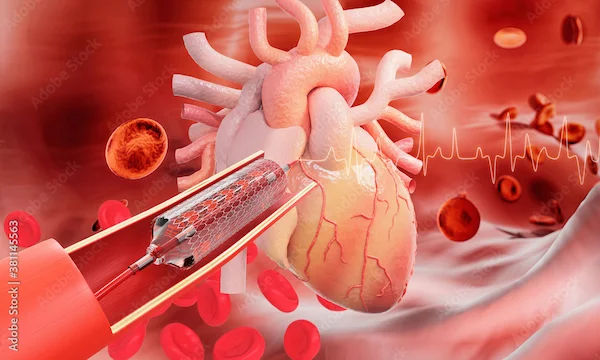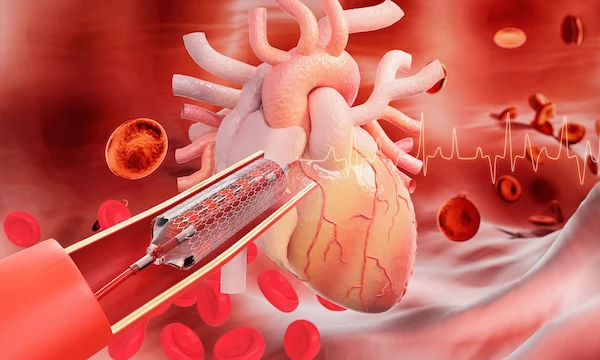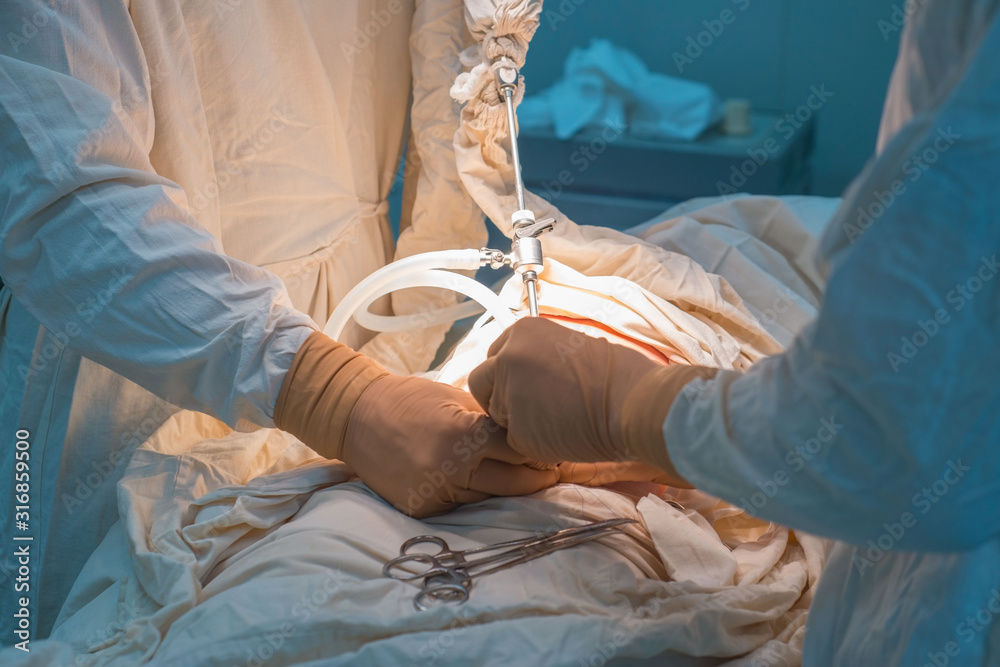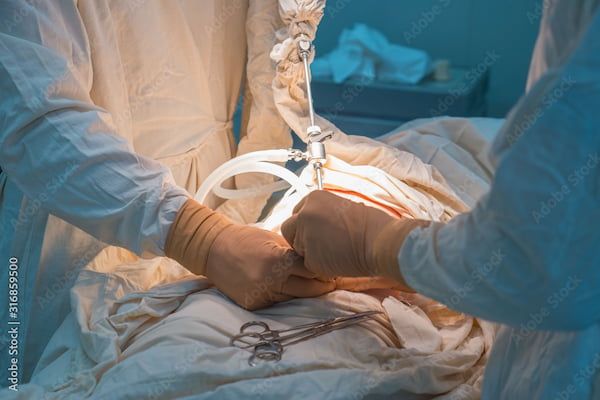Bypass Surgery Without Open Heart
Explore minimally invasive bypass surgery (MIDCAB) options for coronary artery disease, avoiding open-heart procedures. Discover faster recovery & less pain.

Written by
Last updated on 10th Jul, 2025

Introduction
Heart disease is a serious health concern, and when blockages in the arteries restrict blood flow to the heart, bypass surgery is often recommended. Traditionally, this meant openheart surgery—a major procedure that involves splitting the chest bone and stopping the heart temporarily. However, medical advancements now offer a less invasive alternative: bypass surgery without an open heart. If you or a loved one has been advised to undergo bypass surgery, understanding this modern approach can help ease anxiety and make informed decisions.
What Is Bypass Surgery Without Open Heart?
Bypass surgery, also known as coronary artery bypass grafting (CABG), is performed to reroute blood around clogged arteries using healthy blood vessels from another part of the body. The traditional method requires a large incision in the chest, but newer techniques allow surgeons to perform the procedure without fully opening the chest or stopping the heart.
Types of Minimally Invasive Bypass Surgeries
Types of minimally invasive bypass are:
1. Minimally Invasive Direct Coronary Artery Bypass (MIDCAB)
A small incision is made between the ribs.
The surgeon works on a beating heart, avoiding the need for a heart lung machine.
Best suited for patients with blockages in one or two arteries.
2. Robot-Assisted Bypass Surgery
Uses robotic arms controlled by the surgeon for precision.
Tiny incisions reduce trauma and speed up recovery.
Ideal for select patients with less complex blockages.
3. Hybrid Approach
Combines minimally invasive bypass with angioplasty (stent placement).
Used when multiple blockages require different treatments.
Consult Specialists For personalised Tips
Who Can Benefit from This Approach?
Not everyone is a candidate for minimally invasive bypass surgery. Your doctor will consider:
The number and location of blockages.
Overall heart function and health.
Previous surgeries or medical conditions.
It is most suitable for patients with:
One or two blocked arteries.
No severe heart damage.
No other major health complications.
Advantages Over Traditional Open-Heart Surgery
Advantages over traditional surgery:
Smaller Incisions – Less scarring and reduced pain.
No Chest Bone Cutting – Faster healing and lower risk of infection.
Shorter Hospital Stay – Typically 3-5 days instead of 7-10.
Quicker Recovery – Many patients return to normal activities within weeks.
Lower Risk of Complications – Reduced blood loss and fewer infections.
What to Expect Before, During, and After Surgery?
Before Surgery
Your doctor will conduct tests (angiogram, ECG, blood tests).
You may need to stop certain medications (blood thinners).
Follow fasting instructions before the procedure.
During Surgery
You’ll be under general anesthesia.
The surgeon makes small incisions and uses specialized tools to perform the bypass.
The procedure may take 36 hours, depending on complexity.
After Surgery
You’ll spend a day or two in the ICU for monitoring.
Pain management and breathing exercises help prevent complications.
Cardiac rehabilitation (supervised exercise and lifestyle guidance) speeds up recovery.
Recovery Tips for a Smooth Healing Process
Recovery tips for better healing include:
Follow Medication Instructions – Take prescribed blood thinners, pain relievers, and antibiotics.
Incision Care – Keep the surgical area clean and dry.
Gradual Physical Activity – Start with short walks and avoid heavy lifting for 68 weeks.
HeartHealthy Diet – Focus on fruits, vegetables, whole grains, and lean proteins.
Quit Smoking & Limit Alcohol – Both can worsen heart health.
Regular Followups – Monitor progress with your cardiologist.
When to Seek Medical Help?
Contact your doctor if you experience:
Severe chest pain or shortness of breath.
Fever, redness, or pus around the incision.
Irregular heartbeat or excessive swelling.
Can You Prevent Future Blockages?
Bypass surgery fixes the problem but doesn’t cure heart disease. To keep your heart healthy:
Eat a balanced diet (low in salt, sugar, and saturated fats).
Exercise regularly (30 minutes of walking daily).
Manage stress (yoga, meditation, deep breathing).
Control blood pressure, cholesterol, and diabetes.
Final Thoughts
Bypass surgery without an open heart is a groundbreaking option that reduces risks and speeds up recovery. If you’re considering this procedure, consult a cardiologist to determine if it’s right for you. At Apollo 24|7, we offer expert cardiac care with advanced minimally invasive techniques. Book a consultation today to explore your options and take the first step toward a healthier heart.
Consult Top Cardiologists
Consult Specialists For personalised Tips

Dr. Vithal D Bagi
Cardiologist
15 Years • MBBS, MD,DM (Cardiology),DNB (Crdiology ),FSCAC,Senior Consultant & Interventional Cardiologist
Bengaluru
Apollo Hospitals Jayanagar, Bengaluru
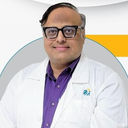
Dr. Lal Daga
Cardiologist
20 Years • MBBS, DNB [MED], DNB [CARDIO], FESC [INT], MNAMS
Ahmedabad
Apollo Hospitals Gandhinagar, Ahmedabad

Dr. Sumanjita Bora
Cardiologist
9 Years • MBBS, PGDCC
Bengaluru
Apollo Clinic, Sarjapur Road, Bengaluru
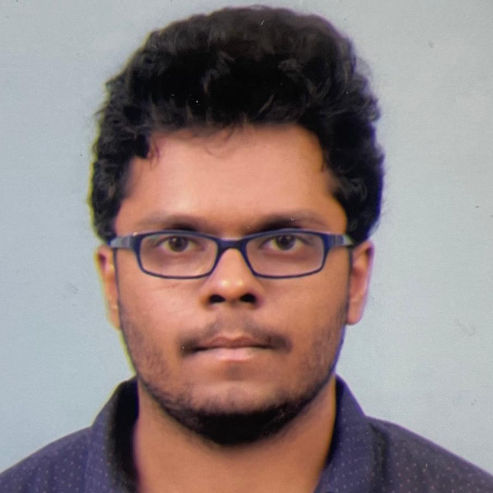
Dr. Bhethala Sharan Prakash
General Physician/ Internal Medicine Specialist
5 Years • MBBS MD
Bengaluru
PRESTIGE SHANTHINIKETAN - SOCIETY CLINIC, Bengaluru

Dr. Anand Ravi
General Physician
2 Years • MBBS
Bengaluru
PRESTIGE SHANTHINIKETAN - SOCIETY CLINIC, Bengaluru
Consult Top Cardiologists

Dr. Vithal D Bagi
Cardiologist
15 Years • MBBS, MD,DM (Cardiology),DNB (Crdiology ),FSCAC,Senior Consultant & Interventional Cardiologist
Bengaluru
Apollo Hospitals Jayanagar, Bengaluru

Dr. Lal Daga
Cardiologist
20 Years • MBBS, DNB [MED], DNB [CARDIO], FESC [INT], MNAMS
Ahmedabad
Apollo Hospitals Gandhinagar, Ahmedabad

Dr. Sumanjita Bora
Cardiologist
9 Years • MBBS, PGDCC
Bengaluru
Apollo Clinic, Sarjapur Road, Bengaluru

Dr. Bhethala Sharan Prakash
General Physician/ Internal Medicine Specialist
5 Years • MBBS MD
Bengaluru
PRESTIGE SHANTHINIKETAN - SOCIETY CLINIC, Bengaluru

Dr. Anand Ravi
General Physician
2 Years • MBBS
Bengaluru
PRESTIGE SHANTHINIKETAN - SOCIETY CLINIC, Bengaluru

